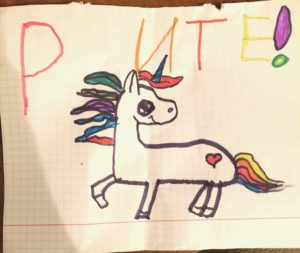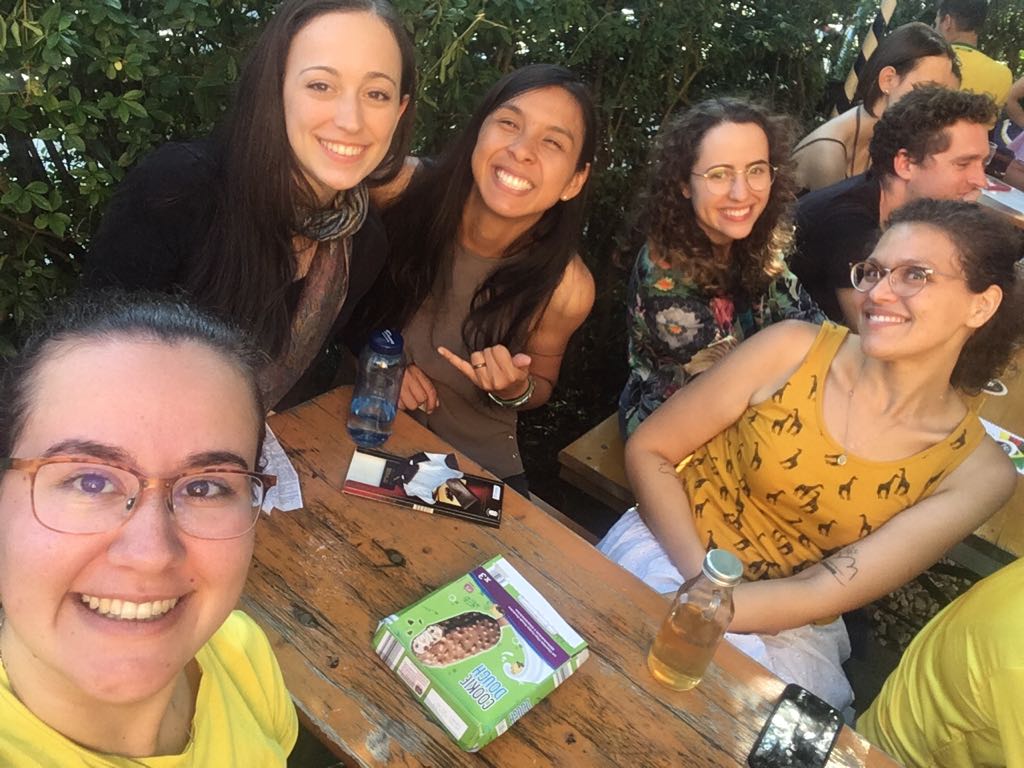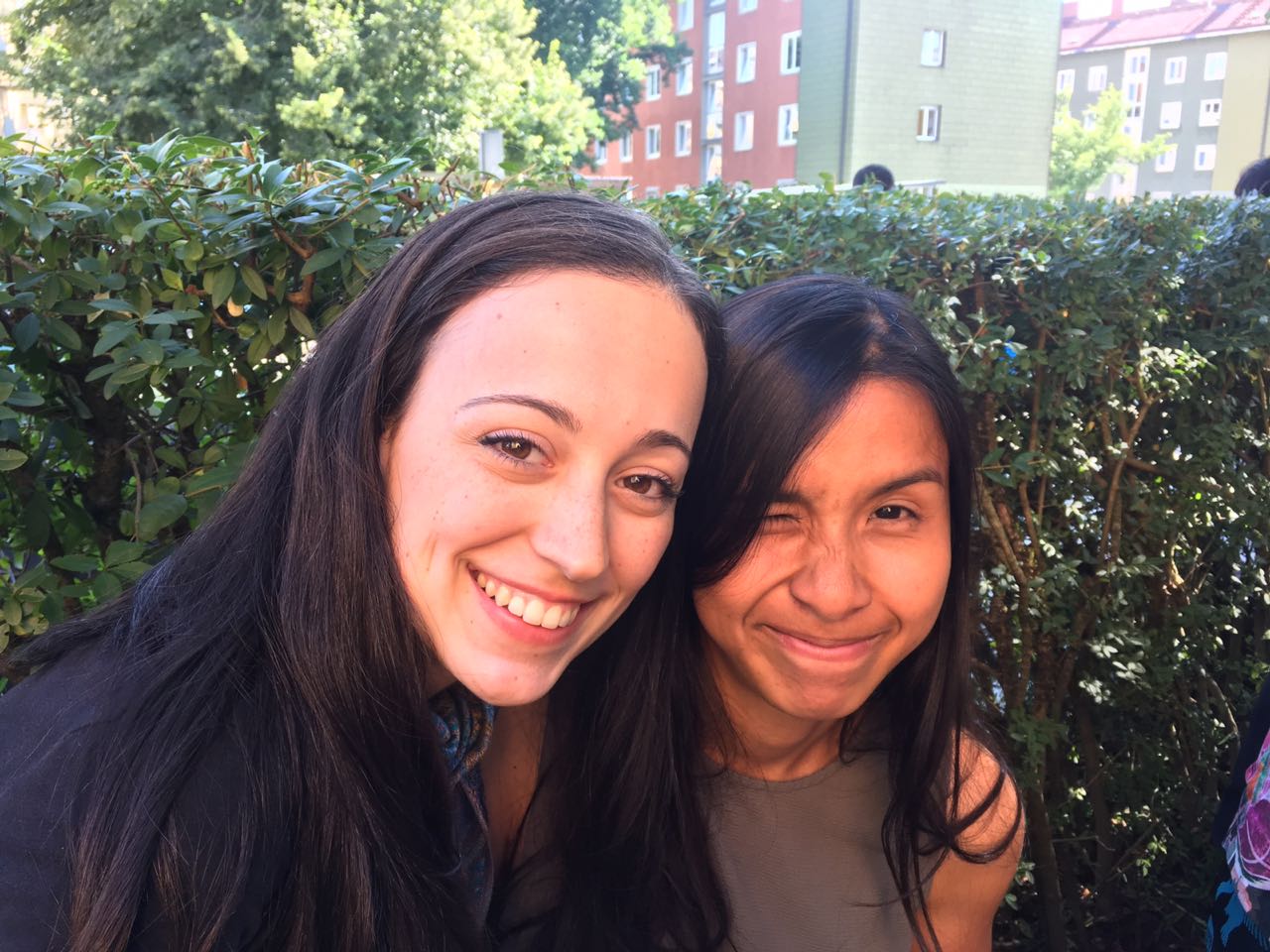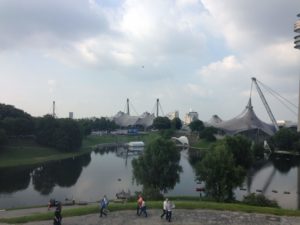….And some days, I’m still Livin’ On a Prayer. Once again, good morning from rainy suburban Moscow! Today marks 4 weeks since I arrived in Russia on a cool, dreary day, meaning that I have nearly reached the halfway point of my journey. The past two weeks have honestly been a bit of a blur, with so much learning in the classroom and sightseeing around the city. I can now sense noticeable improvements in my speaking ability and vocabulary; further details are forthcoming.
Today’s blog will be the first of four or so posts dedicated to cultural or political topics here in Russia and my engagements with native speakers about those topics. Since millions of Americans at home (and abroad too!) celebrated Independence Day, I want to discuss foreign attitudes of Russians about Americans and the United States. Given everything between the United States and Russia recently – elections, Syria, sanctions, Crimea – this post will be nowhere near comprehensive in analyzing various opinions. Instead, this is a chance to look at issues from the viewpoint of Russian students and adults, including my host family.
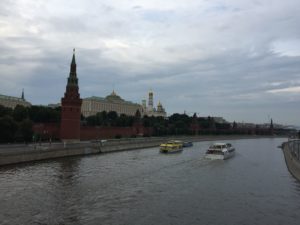
First – and this is a crucial distinction – attitudes about the American government are not the same as attitudes about American citizens. Everyone seems to agree that relations between the two countries are in dire need of improvement. Yet, Russians seem frustrated that the promise of improved relations has not arrived – sanctions are still in place, differences of opinion regarding Syria and Crimea have no easy solution, and generally Russians sense lingering political hostility and distrust from the American government. My host mother, in particular, was particularly critical of current American relations and foreign policy in regards to Russia – she was vocal about her displeasure with sanctions and Crimea. Among many students with whom we conversed in our program’s Russian-American Club, there was a general agreement about the idea / mentality of “us against the world” (especially the Western World) among Russians. Politically, they see themselves as an isolated state, pushed away by Europe and the United States. Many writers have suggested this as part of the reason behind perceived recent Russian aggression; for what it’s worth I believe there is merit behind this theory.
However, these attitudes do not seem to carry over into how Russians view Americans as a whole. Russian students and young adults, in particular, love meeting and interacting with American students and always have a lot of questions about life and politics in the United States. My Russian isn’t necessarily good enough to give complex answers but is sufficient to convey my ideas, and so conversations have been informative and enlightening. Many Russians use the opportunity to practice their English with Americans, which can be slightly frustrating when I’m simultaneously trying to practice my Russian. As a whole, Russians want to see improved relations with the United States and believe that the two nations can be friends and allies. It is important to note here that generally, they believe that the United States needs to show a greater commitment to this process.
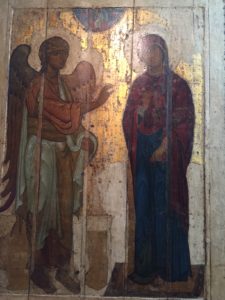
For example, my host mother has hosted American students for years and firmly believes, despite her attitudes about American foreign policy, that interaction can bring about greater understanding. Additionally, one of my Russian friends spoke of дружба (friendship) between the two nations as if a matter of fact. Finally, a middle-aged gentleman who always comes to our Russian-American Club always posts opportunities on Facebook for American students and even started a Facebook group to facilitate interaction between all of us. As an American who has read too much into what divides Russia and the United States, these sentiments allow me to believe that better days are ahead.
Since I haven’t posted in two weeks, I’d like to conclude by giving some of the highlights.
- The World Cup: Russia had an unexpected run during the tournament, but unfortunately Сборная Россия lost to Croatia last night on penalty kicks in the quarterfinals. Nonetheless, it has been incredible to witness the support for the team – after the upset victory against Spain, Moscow celebrated practically all night. I haven’t seen those Belgian fans since that night at the pub, but given Belgium’s success I may still see them.
- Classes: My academic work continues to be engaging and informative, and I believe I am learning a lot here. Some of the lessons have focused on strengthening the fundamentals, which has honestly been good for reassurance and a more solid understanding of more complex topics. I am picking up on new vocabulary and am starting to use verbs more correctly and accurately – one of the hardest parts of the language. The workload has increased and I’ve had to spend more time in the past couple of weeks in my studies. I still leave myself plenty of time for exploration.
- Exploration and Historic Sites: There’s too many here to list, but I’ll name some of my favorites – Alexander’s Garden (Александровский сад), the State Tretyakov Gallery of Art
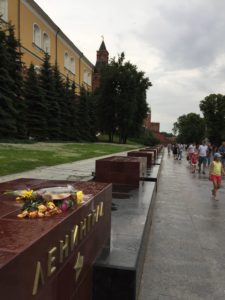
Memorial to all the cities that saw fighting in the Great Patriotic War (WWII). In the foreground is Leningrad (St. Petersburg). (Государственная Третьяковская галерея), the War of 1812 Museum (Музей Отечественной воины 1812 года – The Museum of the Patriotic War of 1812). Александровский сад is a beautiful park that sits right outside the western wall of the Moscow Kremlin, where one can see monuments and statues next to beautiful plants and pines. Notably, the Tomb of the Unknown Solider and the Eternal Flame sit right at the park’s entrance, and further down are monuments to all the Soviet cities that saw fighting during World War II – or, as it is called here, the Great Patriotic War (Великая отечественная война).
- St. Basil’s Cathedral (Собор Василия Блаженного): St. Basil’s gets its own post because I had the opportunity a couple weeks ago to purchase a ticket to see the museum inside. Gazing at hundreds of years of beautiful icons, mosaics, and the multiple iconostasi – walls of icons in the nave of the main church and chapels – I stepped back in time to an era when Russian Orthodoxy, along with the monarchy, was the center of the Russian world. The Cathedral also gives beautiful views of Red Square, the Kremlin, and the Moscow River. The only disappointment was that my phone ran out of battery while inside – now I have an excuse to return.
- Speaking: Last but not least, I was proud of myself this past week for some very good days of listening, comprehension, and speaking. For sure, not every moment was glorious – miscommunications and broken speech still mark me as a foreigner. Nonetheless, in the past week, I noticed myself suddenly speaking quicker, more accurately, and more consistently. The glaring errors and breakdowns are less and less, so good days now don’t seem like a fluke. The challenge going forward is to further push myself to speak when I tend to listen. I won’t be near an expert by the summer’s end, but certainly I will be able to communicate in many more situations.
If you’re still here, thank you for your continued interest in my travels and experiences in Moscow. I love hearing from everyone back home, so please reach out through Facebook Messenger, Snapchat, WhatsApp, etc. Hopefully the second half of this journey leads to similar learning, fun, exploration, wonder, improvement, and confidence as the first half!
